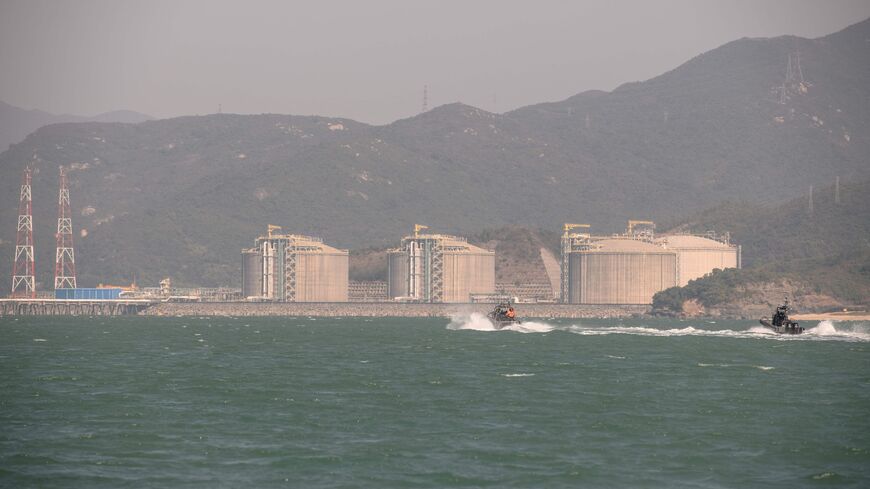DUBAI — The United Arab Emirates signed three agreements with Chinese nuclear energy organizations on Sunday, which experts believe is only the beginning of the nuclear energy goals for the country, and region.
Emirates Nuclear Energy Corporation, which is developing the UAE’s nuclear energy sector, signed memorandums of understanding with China’s Nuclear Power Operations Research Institute, the China National Nuclear Corporation Overseas, and the China Nuclear Energy Industry Corporation.
This takes place months before the UAE hosts the COP28 global climate summit this year, amid its strategy to shift 6% of its energy needs to nuclear to fulfill its net zero by 2050 plan.
Robert Mogielnicki, senior resident scholar at The Arab Gulf States Institute in Washington, said China will play a significant role as the UAE gets serious about diversifying away from oil.
This will lead China, a major crude importer from the Middle East, to change its relationship with the region, he added.
“As oil and gas producers in the Middle East move away from traditional energy exports and toward cleaner and greener energy, China’s role as a supplier of equipment, technology, and industry knowledge is going to become more prominent,” he told Al-Monitor.
He expects the momentum in the energy partnership between the UAE and China to continue and be mutually beneficial.
“Economic actors on both sides stand to gain from this collaboration. I also think there is a way that government actors can capitalize on these deals too,” he said, adding that Gulf countries will also seek partnerships with other countries to realize their nuclear goals.
Nuclear energy development is still nascent in the Middle East and North Africa, with Iran, Turkey, Jordan and Saudi Arabia claiming nuclear ambitions.
Saudi Arabia, which has been interested in nuclear power for decades, is seeking bids to build its first nuclear power plant, according to its 2023 budget statement in February. The kingdom also signed a memorandum of understanding with France on energy cooperation during the same month, which highlighted nuclear energy development.
In 2020, after a three-year delay, the UAE connected the Arab world’s first multi-unit nuclear plant to its grid, built by the Korea Electric Power Corporation. The Barakah Nuclear Energy Plant in Abu Dhabi began Unit 3 operations in February 2023, and upon completion of Unit 4 it is expected to provide 25% of the country’s electricity. This would reduce carbon emissions by 21 million tons, equivalent to 3.2 million cars off the road annually, according to the UAE government.
After Iran and Israel, the UAE is the first country in the MENA region to actively use nuclear energy. The 123 Agreement with the United States in late 2009 established a legal framework for commerce in civilian nuclear energy between the two countries. It allowed the UAE to develop its civilian nuclear program and also provide US firms the opportunity to participate in its nuclear programs, according to the country’s embassy in Washington.
More recent agreements are starting a new chapter in the region’s nuclear energy goals with a wider range of partners.
Ahmed Zaheer, a consultant at Dubai-based Qamar Energy, said the recent normalization deal between Iran and Saudi Arabia in March of this year, brokered by China, helped open the door for these recent deals.
“These nuclear agreements with the UAE and China come in the backdrop of the Saudi-Iran deal and could have been discussed as part of the brokering deal that happened in March,” he said, citing the nuclear agreements as an entry point into the region for China, which he said operates more than 53 nuclear energy projects and has about 20 more under construction.
He said China sees these nuclear deals with the UAE as a diplomatic win as it increasingly seeks to present an alternative vision to US presence and order in the Middle East in the field of energy.


.jpg?h=484aaada&itok=l9O0K7bm)





